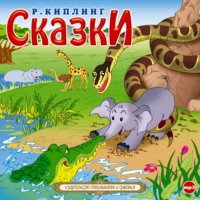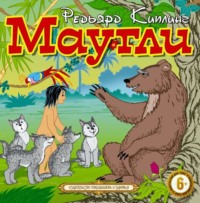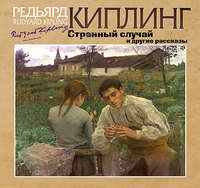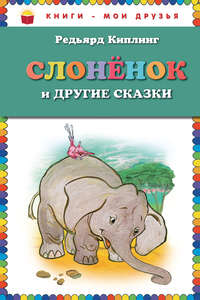 полная версия
полная версияThe Second Jungle Book
"Then the First of the Tigers came back, and his pride was broken in him, and, beating his head upon the ground, he tore up the earth with all his feet and said: 'Remember that I was once the Master of the Jungle. Do not forget me, O Tha! Let my children remember that I was once without shame or fear!' And Tha said: 'This much I will do, because thou and I together saw the Jungle made. For one night in each year it shall be as it was before the buck was killed – for thee and for thy children. In that one night, if ye meet the Hairless One – and his name is Man – ye shall not be afraid of him, but he shall be afraid of you, as though ye were judges of the Jungle and masters of all things. Show him mercy in that night of his fear, for thou hast known what Fear is.'
"Then the First of the Tigers answered, 'I am content'; but when next he drank he saw the black stripes upon his flank and his side, and he remembered the name that the Hairless One had given him, and he was angry. For a year he lived in the marshes, waiting till Tha should keep his promise. And upon a night when the Jackal of the Moon [the Evening Star] stood clear of the Jungle, he felt that his Night was upon him, and he went to that cave to meet the Hairless One. Then it happened as Tha promised, for the Hairless One fell down before him and lay along the ground, and the First of the Tigers struck him and broke his back, for he thought that there was but one such Thing in the Jungle, and that he had killed Fear. Then, nosing above the kill, he heard Tha coming down from the woods of the North, and presently the voice of the First of the Elephants, which is the voice that we hear now – "
The thunder was rolling up and down the dry, scarred hills, but it brought no rain – only heat-lightning that flickered along the ridges – and Hathi went on: "That was the voice he heard, and it said: 'Is this thy mercy?' The First of the Tigers licked his lips and said: 'What matter? I have killed Fear.' And Tha said: 'O blind and foolish! Thou hast untied the feet of Death, and he will follow thy trail till thou diest. Thou hast taught Man to kill!'
"The First of the Tigers, standing stiffly to his kill, said: 'He is as the buck was. There is no Fear. Now I will judge the Jungle Peoples once more."
"And Tha said: 'Never again shall the Jungle Peoples come to thee. They shall never cross thy trail, nor sleep near thee, nor follow after thee, nor browse by thy lair. Only Fear shall follow thee, and with a blow that thou canst not see he shall bid thee wait his pleasure. He shall make the ground to open under thy feet, and the creeper to twist about thy neck, and the tree-trunks to grow together about thee higher than thou canst leap, and at the last he shall take thy hide to wrap his cubs when they are cold. Thou hast shown him no mercy, and none will he show thee.'
"The First of the Tigers was very bold, for his Night was still on him, and he said: 'The Promise of Tha is the Promise of Tha. He will not take away my Night?' And Tha said: 'The one Night is thine, as I have said, but there is a price to pay. Thou hast taught Man to kill, and he is no slow learner.'
"The First of the Tigers said: 'He is here under my foot, and his back is broken. Let the Jungle know I have killed Fear.'
"Then Tha laughed, and said: 'Thou hast killed one of many, but thou thyself shalt tell the Jungle – for thy Night is ended.'
"So the day came; and from the mouth of the cave went out another Hairless One, and he saw the kill in the path, and the First of the Tigers above it, and he took a pointed stick – "
"They throw a thing that cuts now," said Ikki, rustling down the bank; for Ikki was considered uncommonly good eating by the Gonds – they called him Ho-Igoo – and he knew something of the wicked little Gondee axe that whirls across a clearing like a dragon-fly.
"It was a pointed stick, such as they put in the foot of a pit-trap," said Hathi, "and throwing it, he struck the First of the Tigers deep in the flank. Thus it happened as Tha said, for the First of the Tigers ran howling up and down the Jungle till he tore out the stick, and all the Jungle knew that the Hairless One could strike from far off, and they feared more than before. So it came about that the First of the Tigers taught the Hairless One to kill – and ye know what harm that has since done to all our peoples – through the noose, and the pitfall, and the hidden trap, and the flying stick, and the stinging fly that comes out of white smoke [Hathi meant the rifle], and the Red Flower that drives us into the open. Yet for one night in the year the Hairless One fears the Tiger, as Tha promised, and never has the Tiger given him cause to be less afraid. Where he finds him, there he kills him, remembering how the First of the Tigers was made ashamed. For the rest, Fear walks up and down the Jungle by day and by night."
"Ahi! Aoo!" said the deer, thinking of what it all meant to them.
"And only when there is one great Fear over all, as there is now, can we of the Jungle lay aside our little fears, and meet together in one place as we do now."
"For one night only does Man fear the Tiger?" said Mowgli.
"For one night only," said Hathi.
"But I – but we – but all the Jungle knows that Shere Khan kills Man twice and thrice in a moon."
"Even so. Then he springs from behind and turns his head aside as he strikes, for he is full of fear. If Man looked at him he would run. But on his one Night he goes openly down to the village. He walks between the houses and thrusts his head into the doorway, and the men fall on their faces and there he does his kill. One kill in that Night."
"Oh!" said Mowgli to himself, rolling over in the water. "Now I see why it was Shere Khan bade me look at him! He got no good of it, for he could not hold his eyes steady, and – and I certainly did not fall down at his feet. But then I am not a man, being of the Free People."
"Umm!" said Bagheera deep in his furry throat. "Does the Tiger know his Night?"
"Never till the Jackal of the Moon stands clear of the evening mist. Sometimes it falls in the dry summer and sometimes in the wet rains – this one Night of the Tiger. But for the First of the Tigers, this would never have been, nor would any of us have known fear."
The deer grunted sorrowfully, and Bagheera's lips curled in a wicked smile. "Do men know this – tale?" said he.
"None know it except the tigers, and we, the elephants – the children of Tha. Now ye by the pools have heard it, and I have spoken."
Hathi dipped his trunk into the water as a sign that he did not wish to talk.
"But – but – but," said Mowgli, turning to Baloo, "why did not the First of the Tigers continue to eat grass and leaves and trees? He did but break the buck's neck. He did not eat. What led him to the hot meat?"
"The trees and the creepers marked him, Little Brother, and made him the striped thing that we see. Never again would he eat their fruit; but from that day he revenged himself upon the deer, and the others, the Eaters of Grass," said Baloo.
"Then thou knowest the tale. Heh? Why have I never heard?"
"Because the Jungle is full of such tales. If I made a beginning there would never be an end to them. Let go my ear, Little Brother."
THE LAW OF THE JUNGLE
Just to give you an idea of the immense variety of the Jungle Law, I have translated into verse (Baloo always recited them in a sort of sing-song) a few of the laws that apply to the wolves. There are, of course, hundreds and hundreds more, but these will do for specimens of the simpler rulings.
Now this is the Law of the Jungle – as old and as true as the sky;And the Wolf that shall keep it may prosper, but the Wolf that shall break it must die.As the creeper that girdles the tree-trunk the Law runneth forward and back —For the strength of the Pack is the Wolf, and the strength of the Wolf is the Pack.Wash daily from nose-tip to tail-tip; drink deeply, but never too deep;And remember the night is for hunting, and forget not the day is for sleep.The Jackal may follow the Tiger, but, Cub, when thy whiskers are grown,Remember the Wolf is a hunter – go forth and get food of thine own.Keep peace with the Lords of the Jungle – the Tiger, the Panther, the Bear;And trouble not Hathi the Silent, and mock not the Boar in his lair.When Pack meets with Pack in the Jungle, and neither will go from the trail,Lie down till the leaders have spoken – it may be fair words shall prevail.When ye fight with a Wolf of the Pack, ye must fight him alone and afar,Lest others take part in the quarrel, and the Pack be diminished by war.The Lair of the Wolf is his refuge, and where he has made him his home,Not even the Head Wolf may enter, not even the Council may come.The Lair of the Wolf is his refuge, but where he has digged it too plain,The Council shall send him a message, and so he shall change it again.If ye kill before midnight, be silent, and wake not the woods with your bay,Lest ye frighten the deer from the crops, and the brothers go empty away.Ye may kill for yourselves, and your mates, and your cubs as they need, and ye can;But kill not for pleasure of killing, and seven times never kill Man.If ye plunder his Kill from a weaker, devour not all in thy pride;Pack-Right is the right of the meanest; so leave him the head and the hide.The Kill of the Pack is the meat of the Pack. Ye must eat where it lies;And no one may carry away of that meat to his lair, or he dies.The Kill of the Wolf is the meat of the Wolf. He may do what he will,But, till he has given permission, the Pack may not eat of that Kill.Cub-Right is the right of the Yearling. From all of his Pack he may claimFull-gorge when the killer has eaten; and none may refuse him the same.Lair-Right is the right of the Mother. From all of her year she may claimOne haunch of each kill for her litter, and none may deny her the same.Cave-Right is the right of the Father – to hunt by himself for his own:He is freed of all calls to the Pack; he is judged by the Council alone.Because of his age and his cunning, because of his gripe and his paw,In all that the Law leaveth open, the word of the Head Wolf is Law.Now these are the Laws of the Jungle, and many and mighty are they;But the head and the hoof of the Law and the haunch and the hump is – Obey!THE MIRACLE OF PURUN BHAGAT
The night we felt the earth would moveWe stole and plucked him by the hand,Because we loved him with the loveThat knows but cannot understand.And when the roaring hillside broke,And all our world fell down in rain,We saved him, we the Little Folk;But lo! he does not come again!Mourn now, we saved him for the sakeOf such poor love as wild ones may.Mourn ye! Our brother will not wake,And his own kind drive us away!Dirge of the Langurs.THE MIRACLE OF PURUN BHAGATThere was once a man in India who was Prime Minister of one of the semi-independent native States in the northwestern part of the country. He was a Brahmin, so high-caste that caste ceased to have any particular meaning for him; and his father had been an important official in the gay-colored tag-rag and bobtail of an old-fashioned Hindu Court. But as Purun Dass grew up he felt that the old order of things was changing, and that if any one wished to get on in the world he must stand well with the English, and imitate all that the English believed to be good. At the same time a native official must keep his own master's favor. This was a difficult game, but the quiet, close-mouthed young Brahmin, helped by a good English education at a Bombay University, played it coolly, and rose, step by step, to be Prime Minister of the kingdom. That is to say, he held more real power than his master, the Maharajah.
When the old king – who was suspicious of the English, their railways and telegraphs – died, Purun Dass stood high with his young successor, who had been tutored by an Englishman; and between them, though he always took care that his master should have the credit, they established schools for little girls, made roads, and started State dispensaries and shows of agricultural implements, and published a yearly blue-book on the "Moral and Material Progress of the State," and the Foreign Office and the Government of India were delighted. Very few native States take up English progress altogether, for they will not believe, as Purun Dass showed he did, that what was good for the Englishman must be twice as good for the Asiatic. The Prime Minister became the honored friend of Viceroys and Governors, and Lieutenant-Governors, and medical missionaries, and common missionaries, and hard-riding English officers who came to shoot in the State preserves, as well as of whole hosts of tourists who traveled up and down India in the cold weather, showing how things ought to be managed. In his spare time he would endow scholarships for the study of medicine and manufactures on strictly English lines, and write letters to the "Pioneer," the greatest Indian daily paper, explaining his master's aims and objects.
At last he went to England on a visit, and had to pay enormous sums to the priests when he came back; for even so high-caste a Brahmin as Purun Dass lost caste by crossing the black sea. In London he met and talked with every one worth knowing – men whose names go all over the world – and saw a great deal more than he said. He was given honorary degrees by learned universities, and he made speeches and talked of Hindu social reform to English ladies in evening dress, till all London cried, "This is the most fascinating man we have ever met at dinner since cloths were first laid."
When he returned to India there was a blaze of glory, for the Viceroy himself made a special visit to confer upon the Maharajah the Grand Cross of the Star of India – all diamonds and ribbons and enamel; and at the same ceremony, while the cannon boomed, Purun Dass was made a Knight Commander of the Order of the Indian Empire; so that his name stood Sir Purun Dass, K.C.I.E.
That evening, at dinner in the big Viceregal tent, he stood up with the badge and the collar of the Order on his breast, and replying to the toast of his master's health, made a speech few Englishmen could have bettered.
Next month, when the city had returned to its sunbaked quiet, he did a thing no Englishman would have dreamed of doing; for, so far as the world's affairs went, he died. The jeweled order of his knighthood went back to the Indian Government, and a new Prime Minister was appointed to the charge of affairs, and a great game of General Post began in all the subordinate appointments. The priests knew what had happened and the people guessed; but India is the one place in the world where a man can do as he pleases and nobody asks why; and the fact that Dewan Sir Purun Dass, K.C.I.E., had resigned position, palace, and power, and taken up the begging-bowl and ocher-colored dress of a Sunnyasi or holy man, was considered nothing extraordinary. He had been, as the Old Law recommends, twenty years a youth, twenty years a fighter, – though he had never carried a weapon in his life, – and twenty years head of a household. He had used his wealth and his power for what he knew both to be worth; he had taken honor when it came his way; he had seen men and cities far and near, and men and cities had stood up and honored him. Now he would let these things go, as a man drops the cloak he no longer needs.
Behind him, as he walked through the city gates, an antelope skin and brass-handled crutch under his arm, and a begging-bowl of polished brown coco-de-mer in his hand, barefoot, alone, with eyes cast on the ground – behind him they were firing salutes from the bastions in honor of his happy successor. Purun Dass nodded. All that life was ended; and he bore it no more ill-will or good-will than a man bears to a colorless dream of the night. He was a Sunnyasi – a houseless wandering mendicant, depending on his neighbors for his daily bread; and so long as there is a morsel to divide in India neither priest nor beggar starves. He had never in his life tasted meat, and very seldom eaten even fish. A five-pound note would have covered his personal expenses for food through any one of the many years in which he had been absolute master of millions of money. Even when he was being lionized in London he had held before him his dream of peace and quiet – the long, white, dusty Indian road, printed all over with bare feet, the incessant, slow-moving traffic, and the sharp-smelling wood smoke curling up under the fig-trees in the twilight, where the wayfarers sit at their evening meal.
When the time came to make that dream true the Prime Minister took the proper steps, and in three days you might more easily have found a bubble in the trough of the long Atlantic seas than Purun Dass among the roving, gathering, separating millions of India.
At night his antelope skin was spread where the darkness overtook him – sometimes in a Sunnyasi monastery by the roadside; sometimes by a mud pillar shrine of Kala Pir, where the Jogis, who are another misty division of holy men, would receive him as they do those who know what castes and divisions are worth; sometimes on the outskirts of a little Hindu village, where the children would steal up with the food their parents had prepared; and sometimes on the pitch of the bare grazing-grounds, where the flame of his stick fire waked the drowsy camels. It was all one to Purun Dass – or Purun Bhagat, as he called himself now. Earth, people, and food were all one. But unconsciously his feet drew him away northward and eastward; from the south to Rohtak; from Rohtak to Kurnool; from Kurnool to ruined Samanah, and then up-stream along the dried bed of the Gugger river that fills only when the rain falls in the hills, till one day he saw the far line of the great Himalayas.
Then Purun Bhagat smiled, for he remembered that his mother was of Rajput Brahmin birth, from Kulu way – a Hill-woman, always homesick for the snows – and that the least touch of Hill blood draws a man at the end back to where he belongs.
"Yonder," said Purun Bhagat, breasting the lower slopes of the Sewaliks, where the cacti stand up like seven-branched candlesticks – "yonder I shall sit down and get knowledge"; and the cool wind of the Himalayas whistled about his ears as he trod the road that led to Simla.
The last time he had come that way it had been in state, with a clattering cavalry escort, to visit the gentlest and most affable of Viceroys; and the two had talked for an hour together about mutual friends in London, and what the Indian common folk really thought of things. This time Purun Bhagat paid no calls, but leaned on the rail of the Mall, watching that glorious view of the Plains spread out forty miles below, till a native Mohammedan policeman told him he was obstructing traffic; and Purun Bhagat salaamed reverently to the Law, because he knew the value of it, and was seeking for a Law of his own. Then he moved on, and slept that night in an empty hut at Chota Simla, which looks like the very last end of the earth, but it was only the beginning of his journey.
He followed the Himalaya-Thibet road, the little ten-foot track that is blasted out of solid rock, or strutted out on timbers over gulfs a thousand feet deep; that dips into warm, wet, shut-in valleys, and climbs out across bare, grassy hill-shoulders where the sun strikes like a burning-glass; or turns through dripping, dark forests where the tree-ferns dress the trunks from head to heel, and the pheasant calls to his mate. And he met Thibetan herdsmen with their dogs and flocks of sheep, each sheep with a little bag of borax on his back, and wandering wood-cutters, and cloaked and blanketed Lamas from Thibet, coming into India on pilgrimage, and envoys of little solitary Hill-states, posting furiously on ring-streaked and piebald ponies, or the cavalcade of a Rajah paying a visit; or else for a long, clear day he would see nothing more than a black bear grunting and rooting below in the valley. When he first started, the roar of the world he had left still rang in his ears, as the roar of a tunnel rings long after the train has passed through; but when he had put the Mutteeanee Pass behind him that was all done, and Purun Bhagat was alone with himself, walking, wondering, and thinking, his eyes on the ground, and his thoughts with the clouds.
One evening he crossed the highest pass he had met till then – it had been a two days' climb – and came out on a line of snow-peaks that banded all the horizon – mountains from fifteen to twenty thousand feet high, looking almost near enough to hit with a stone, though they were fifty or sixty miles away. The pass was crowned with dense, dark forest – deodar, walnut, wild cherry, wild olive, and wild pear, but mostly deodar, which is the Himalayan cedar; and under the shadow of the deodars stood a deserted shrine to Kali – who is Durga, who is Sitala, who is sometimes worshiped against the smallpox.
Purun Dass swept the stone floor clean, smiled at the grinning statue, made himself a little mud fireplace at the back of the shrine, spread his antelope skin on a bed of fresh pine-needles, tucked his bairagi– his brass-handled crutch – under his armpit, and sat down to rest.
Immediately below him the hillside fell away, clean and cleared for fifteen hundred feet, where a little village of stone-walled houses, with roofs of beaten earth, clung to the steep tilt. All round it the tiny terraced fields lay out like aprons of patchwork on the knees of the mountain, and cows no bigger than beetles grazed between the smooth stone circles of the threshing-floors. Looking across the valley, the eye was deceived by the size of things, and could not at first realize that what seemed to be low scrub, on the opposite mountain-flank, was in truth a forest of hundred-foot pines. Purun Bhagat saw an eagle swoop across the gigantic hollow, but the great bird dwindled to a dot ere it was half-way over. A few bands of scattered clouds strung up and down the valley, catching on a shoulder of the hills, or rising up and dying out when they were level with the head of the pass. And "Here shall I find peace," said Purun Bhagat.
Now, a Hill-man makes nothing of a few hundred feet up or down, and as soon as the villagers saw the smoke in the deserted shrine, the village priest climbed up the terraced hillside to welcome the stranger.
When he met Purun Bhagat's eyes – the eyes of a man used to control thousands – he bowed to the earth, took the begging-bowl without a word, and returned to the village, saying, "We have at last a holy man. Never have I seen such a man. He is of the Plains – but pale-colored – a Brahmin of the Brahmins." Then all the housewives of the village said, "Think you he will stay with us?" and each did her best to cook the most savory meal for the Bhagat. Hill-food is very simple, but with buckwheat and Indian corn, and rice and red pepper, and little fish out of the stream in the valley, and honey from the flue-like hives built in the stone walls, and dried apricots, and turmeric, and wild ginger, and bannocks of flour, a devout woman can make good things, and it was a full bowl that the priest carried to the Bhagat. Was he going to stay? asked the priest. Would he need a chela– a disciple – to beg for him? Had he a blanket against the cold weather? Was the food good?
Purun Bhagat ate, and thanked the giver. It was in his mind to stay. That was sufficient, said the priest. Let the begging-bowl be placed outside the shrine, in the hollow made by those two twisted roots, and daily should the Bhagat be fed; for the village felt honored that such a man – he looked timidly into the Bhagat's face – should tarry among them.
That day saw the end of Purun Bhagat's wanderings. He had come to the place appointed for him – the silence and the space. After this, time stopped, and he, sitting at the mouth of the shrine, could not tell whether he were alive or dead; a man with control of his limbs, or a part of the hills, and the clouds, and the shifting rain and sunlight. He would repeat a Name softly to himself a hundred hundred times, till, at each repetition, he seemed to move more and more out of his body, sweeping up to the doors of some tremendous discovery; but, just as the door was opening, his body would drag him back, and, with grief, he felt he was locked up again in the flesh and bones of Purun Bhagat.
Every morning the filled begging-bowl was laid silently in the crutch of the roots outside the shrine. Sometimes the priest brought it; sometimes a Ladakhi trader, lodging in the village, and anxious to get merit, trudged up the path; but, more often, it was the woman who had cooked the meal overnight; and she would murmur, hardly above her breath: "Speak for me before the gods, Bhagat. Speak for such a one, the wife of so-and-so!" Now and then some bold child would be allowed the honor, and Purun Bhagat would hear him drop the bowl and run as fast as his little legs could carry him, but the Bhagat never came down to the village. It was laid out like a map at his feet. He could see the evening gatherings, held on the circle of the threshing-floors because that was the only level ground; could see the wonderful unnamed green of the young rice, the indigo blues of the Indian corn, the dock-like patches of buckwheat, and, in its season, the red bloom of the amaranth, whose tiny seeds, being neither grain nor pulse, make a food that can be lawfully eaten by Hindus in time of fasts.








